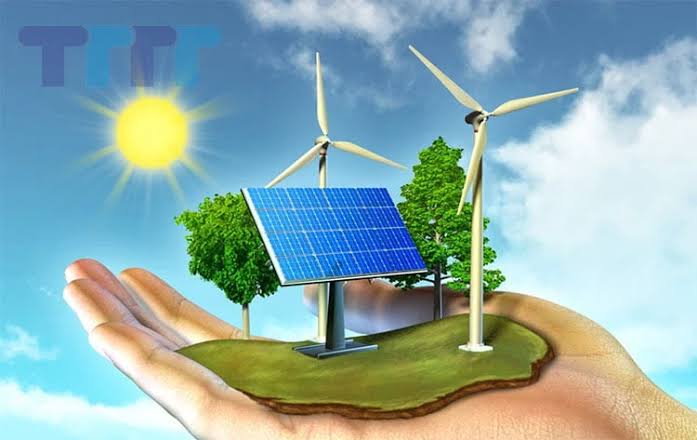The global push for sustainability has placed renewable energy at the heart of climate and economic strategies. As of 2025, more countries and businesses are turning to clean energy sources like solar, wind, hydro, geothermal, and biomass to meet their energy demands in a way that is both eco-friendly and economically beneficial. Unlike fossil fuels, renewables are naturally replenished, producing little to no greenhouse gas emissions and reducing our dependence on finite resources.
Using renewable energy isn’t just about saving the environment—it’s about creating a resilient, diversified, and forward-looking energy future. Here are the major benefits associated with renewable energy adoption across different sectors.
Environmental Preservation and Reduced Emissions
One of the most significant advantages of renewable energy is its minimal impact on the environment. Fossil fuels like coal and oil release large amounts of carbon dioxide and other pollutants when burned, which contributes to global warming, acid rain, and air pollution.
In contrast, renewable sources offer:
- Lower carbon footprints, helping slow down climate change
- Cleaner air and water due to reduced industrial pollution
- Preservation of ecosystems by avoiding mining and drilling
By switching to clean power, countries can significantly cut their carbon emissions and meet global climate targets like those outlined in the Paris Agreement.
Energy Security and Independence
Renewable energy increases energy independence by reducing reliance on imported fuels. Countries with abundant solar, wind, or hydro resources can harness local power rather than depending on volatile international markets.
This shift enhances:
- National security by lowering geopolitical risk
- Economic stability by buffering against fossil fuel price spikes
- Energy accessibility in rural or remote areas that lack infrastructure
Energy produced locally also supports decentralized grids, making energy systems more resilient to disruptions like blackouts, natural disasters, or cyberattacks.
Economic Growth and Job Creation
The renewable energy industry has become a significant driver of job creation and economic activity worldwide. According to recent trends, clean energy jobs have now outpaced fossil fuel jobs in many regions, especially in solar and wind sectors.
Key economic benefits include:
- Employment in installation, maintenance, engineering, and research
- Growth of local industries like battery production, grid services, and electric vehicles
- Attraction of investments and green financing for new projects
Governments that invest in renewables also stimulate innovation and entrepreneurship, especially among startups and tech companies working on sustainable solutions.
Cost Savings and Affordability
Renewable energy has become increasingly cost-effective. The prices for solar panels, wind turbines, and battery storage have fallen dramatically over the past decade, making renewable energy more competitive than coal or natural gas in many markets.
With continued advances in technology and scaled production:
- Solar and wind power often provide the lowest-cost electricity in many countries
- Consumers and businesses can lock in lower, more predictable energy bills
- Governments save billions on health care costs and environmental cleanup associated with pollution
Renewables also reduce the long-term maintenance and fuel costs typical of fossil fuel infrastructure.
Technological Innovation and Energy Efficiency
The rise of renewable energy has spurred innovations in energy management, storage, and grid technology. Smart grids, for example, use AI and real-time data to optimize energy flow and reduce waste.
New developments include:
- Advanced battery storage for consistent power even when the sun isn’t shining or wind isn’t blowing
- Microgrids and distributed energy systems that increase grid flexibility
- Solar windows, floating wind farms, and bioenergy from waste
Such innovations create more reliable, efficient systems and expand the use of renewable energy to homes, businesses, and even vehicles.
Public Health Improvements
Burning fossil fuels emits harmful pollutants that contribute to respiratory illnesses, cardiovascular disease, and premature death. Transitioning to cleaner energy sources leads to better air quality and fewer health problems.
Public health benefits include:
- Lower rates of asthma and lung-related diseases in urban areas
- Reduced health care spending due to cleaner environments
- Fewer workplace hazards in clean energy sectors compared to mining or oil drilling
Communities near coal plants or oil refineries, often low-income or marginalized, see some of the most immediate health improvements.
Sustainability for Future Generations
Unlike fossil fuels, renewable energy sources do not deplete over time. Solar radiation, wind patterns, and water flow will continue naturally, offering a stable, long-term solution to the energy demands of future generations.
This ensures:
- Energy availability for the next century and beyond
- Responsible resource management in line with ecological limits
- Intergenerational equity, where future populations are not burdened by today’s energy decisions
Educating youth and building a clean energy mindset also fosters global responsibility and environmental stewardship.
Versatility and Broad Application
Renewable energy sources can be adapted to serve a wide range of needs—from powering small homes to running large factories and even entire cities. They can also be combined in hybrid systems to improve reliability and efficiency.
Examples of application include:
- Rooftop solar for residential areas
- Offshore wind farms for large-scale electricity production
- Geothermal systems for heating and cooling
- Bioenergy for agricultural and waste-to-energy projects
This versatility makes renewable energy suitable for both developed and developing regions, enhancing energy equity.
Support from Governments and Global Organizations
Governments around the world are actively promoting renewable energy through tax credits, grants, feed-in tariffs, and regulatory incentives. Organizations like the International Renewable Energy Agency (IRENA) and the United Nations also play a vital role in guiding energy transitions.
This support ensures:
- Ongoing funding for research and development
- Clear roadmaps for decarbonization
- Alignment with Sustainable Development Goals (SDGs)
As more countries legislate against fossil fuels and promote green alternatives, renewables will continue to become the global standard.
Conclusion
Renewable energy is no longer just an alternative—it’s the future of power. With its clear environmental, economic, health, and social benefits, the shift toward clean energy is essential for building a sustainable and resilient world. As technological advancements make renewables more accessible and affordable, individuals, businesses, and governments have a unique opportunity to accelerate the transition to a greener, healthier planet.
By embracing renewable energy today, we not only solve current challenges but also invest in a better tomorrow for all.




Renewable energy is no longer an alternative